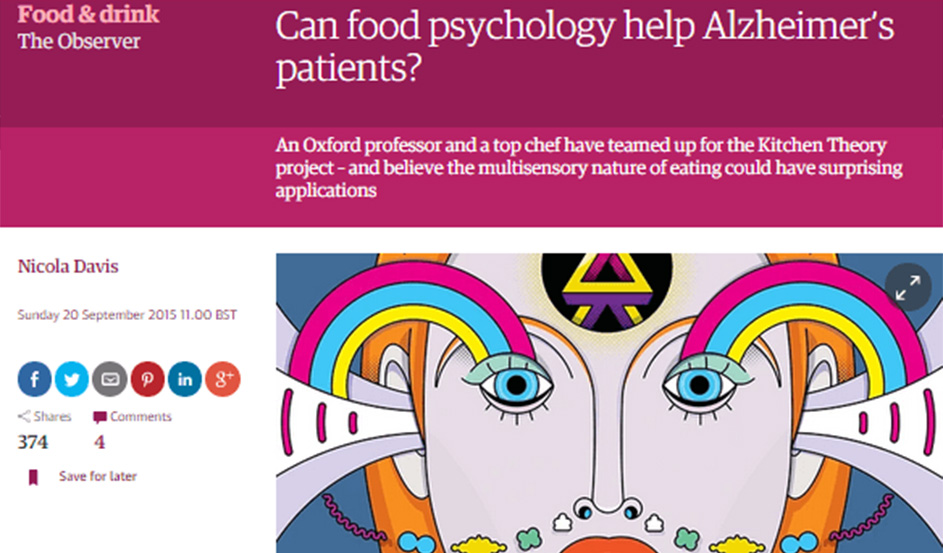
THE OBSERVER – CAN FOOD PSYCHOLOGY HELP ALZHEIMER’S PATIENTS?
CAN FOOD PSYCHOLOGY HELP ALZHEIMER’S PATIENTS?
AN OXFORD PROFESSOR AND A TOP CHEF HAVE TEAMED UP FOR THE KITCHEN THEORY PROJECT – AND BELIEVE THE MULTISENSORY NATURE OF EATING COULD HAVE SURPRISING APPLICATIONS
Nicola Davis @NicolaKSDavis – Sunday 20 September 2015 11.00 BST
Can you possibly create the perfect dining experience for someone?” says Jozef Youssef, when we met in a Pret a Manger off Hanover Square. “Can you knowingly do so?” It’s an apt location. The thoughtful, eloquent Youssef believes chefs could learn a thing or two from the high street and we’re sat in a showcase of consumer seduction, from the packaging that loudly shuns sell-by dates in favour of more emotive “freshness” to the name above the door with its hint of continental chic. “The world now is all about experiences,” he says. “In order to craft and design that experience [chefs] have to do what all your Starbucks and McDonalds of the world are doing and that’s understanding the psychology of your diners.”
Having worked at the Dorchester, Hélène Darroze at the Connaught and the Fat Duck, Youssef is unusual for a chef. He doesn’t want to open a restaurant. Or a pub. Or even a street-food van. He’s thrown in his lot with Oxford professor Charles Spence to probe the psychology of diners and learn what pushes their buttons – off the plate as well as on. The result is Youssef’s brainchild, Kitchen Theory, a project that probes everything from the influence of sound on diners’ perceptions of a meal to how best to persuade guests to embrace unexpected ingredients – insects included. It’s a symbiotic relationship, with Spence’s work inspiring Youssef’s menus, and surprising results from Youssef’s pop-up dining “experiences” pointing to new avenues and approaches for Spence’s lab….


Leave a Reply